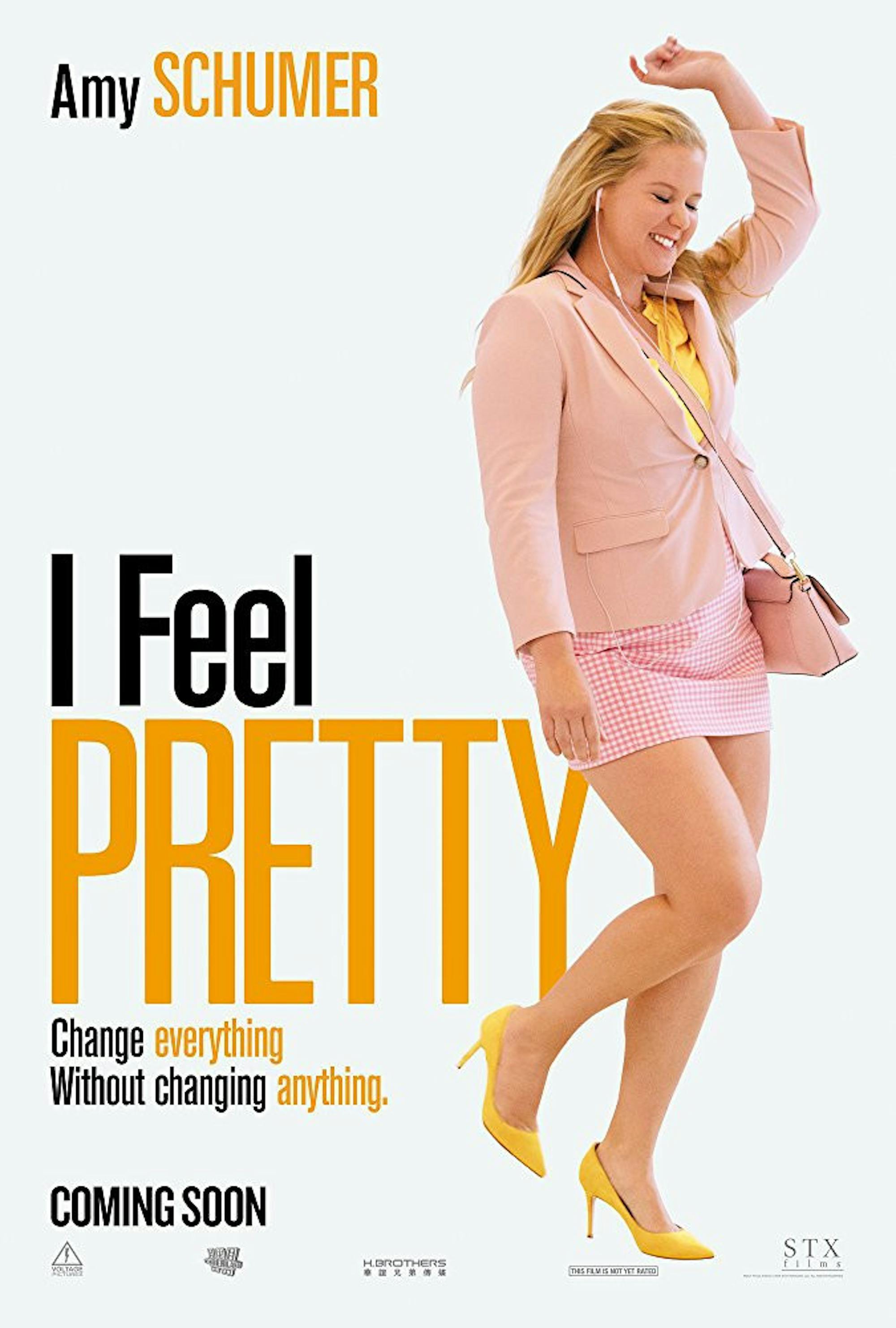Amy Schumer’s "I Feel Pretty" (2018) poses an interesting question: What would happen if women simply decided to find themselves beautiful? What kind of confidence would they be able to awaken with such an attitude? Unfortunately, "I Feel Pretty’s" premise and intentions are its only strong characteristics.
The film follows physically insecure Renee Bennett (Schumer), who works for a glamorous cosmetics company, Lily LeClaire, in a decidedly un-glamorous basement office. When Renee hits her head in a SoulCycle class, she awakens with the belief that she looks like a supermodel, and her self-doubt disappears. Armed with a brazen new confidence, she lands a glitzy receptionist job at her company’s Fifth Avenue headquarters, gets a new boyfriend named Ethan (Rory Scovel) and essentially upgrades her life by simply believing that she is beautiful. However, Renee’s confidence eventually catches up to her, and she must learn to negotiate accepting herself without being too self-obsessed.
"I Feel Pretty" has good intentions and starts on a high note. It seeks to encourage female empowerment through Renee’s drastic change in her attitude (as evidenced through the film's advertising slogan: “Change everything without changing anything”), suggesting that confidence, not looks, is how women can get what they want. The film, however, struggles to effectively relay this message because it doesn’t quite know what to do with Renee once she achieves all her goals. Therefore, the first half of the movie is rather strong, but as Renee begins to spiral into narcissism, the movie’s messages become muddied and incoherent. It’s almost as though "I Feel Pretty" is mediating too many viewpoints at once in anticipation of its own backlash, meaning that for an almost two-hour long film, it says surprisingly little.
Part of this issue is one of identity: "I Feel Pretty" doesn’t seem to know what kind of movie it is, and it’s rather diffident in its depictions. It has its humorous moments, of which Renee boldly entering a bikini contest to the dismay of Ethan is probably the highlight. But at other times, it takes itself too seriously in an attempt to add substance and credibility to its central message.
However, that same central message is riddled with contradictions throughout the movie. Confidence is supposed to be the key element to Renee achieving her dreams, yet the movie’s setting of a posh and snobbish cosmetics industry means that the film has barely any space to shift its focus away from physical beauty. The premise of Renee’s supermodel attitude even asserts that a woman’s physical looks are the only path to confidence,instead of, for example, her intelligence or fearlessness. The Lily LeClaire company acts as both protagonist and antagonist by giving Renee the opportunity to rise up in the corporate world while also reinforcing unattainable beauty standards. And Renee’s descent into selfish egotism at the peak of her success unfortunately suggests that women cannot be confident and achieve their goals without sacrificing compassion and modesty in the process.
Renee’s “condition” isn’t clearly defined, either. Her warped self-image comes across as merely an enlightened attitude at times, but it's also portrayed as comically delusional. This inconsistency makes it difficult for us to understand Renee as a character. Because her personality vacillates so abruptly between confidence and insecurity, it’s difficult to feel attached to her as a protagonist for the simple reason that we don’t know which Renee to accept as the authentic one. By the very end of the film, it’s supposed to be the one that has balanced both her confidence and her humility, yet that version of Renee gets so little screen time that this depiction is almost completely lost.
Again, "I Feel Pretty" clearly has good intentions. A rousing speech toward the very end of the film tries to encourage women to accept their natural beauty in addition to their intelligence and personality (though it doesn’t help that this speech is masked as the new corporate approach of Lily LeClaire). The film also rather obscurely argues that everyone has their own insecurities. It clearly takes issue with the unreasonable beauty standards that society expects women to achieve (venturing, fleetingly and barely noticeably, into male insecurity with Ethan’s character as well). However, it’s so narrow in its depiction of how one might combat those standards that its message doesn’t quite come through. In the end, by suggesting that unshakable confidence must be tied to beauty, "I Feel Pretty" feels like a missed opportunity to truly empower women.
Despite pretty good intentions, 'I Feel Pretty' pretty much fails

A promotional image for "I Feel Pretty" (2018) is pictured.
Summary
2.5 Stars





